EARLALL explores EU Care Sector skills challenges and opportunities across the European regions
22/04/2024
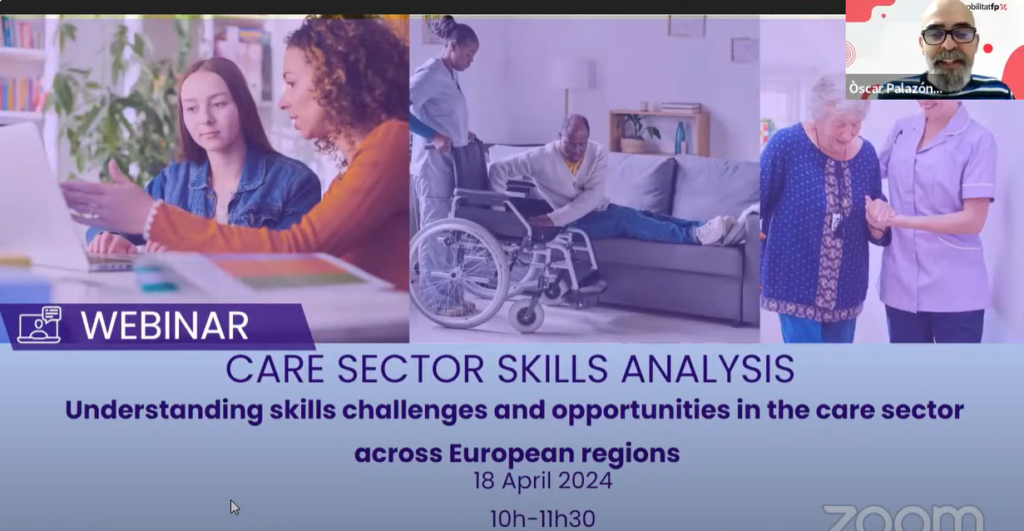
EARLALL continues with its series of webinars focused on exploring the skills challenges and opportunities in different sectors (agriculture, Care, EU blue economy and textile) across European regions. These webinars are promoted by the EARLALL Working Group on Skills and Labour Market.
Following World Health Day, EARLALL organised a second webinar focusing on the skills challenges and opportunities in the EU Care Sector on 18 April 2024, gathering more than 30 participants from regional and local authorities, EU and international institutions, and education and training experts. The webinar discussed the challenges and future projections of the care sector in the EU, with a focus on an ageing population, labour and skills shortage, and the need for specific training.
Anna Cabedo and Òscar Palazón, Regional Ministry of Education, Catalonia and EARLALL’s WG Skills and Labour Market co-leaders, moderated the webinar. Òscar Palazón introduced the webinar by explaining that the care work consists of two overlapping activities: direct, personal and relational care activities, such as feeding a baby or nursing an ill partner; and indirect care activities, such as cooking and cleaning. The Health sector employs almost 15 million people in Europe, and there are over 100.000 Long Term Care Providers (LTCP) throughout Europe, employing over 6.3 million long-term care workers in the EU (in 2019, data from the Pact for Skills on Health). He also highlighted the care sector’s contribution to job creation and its significance in future pandemic preparedness in his opening remarks.
Skills for the EU Care Sector Perspectives from Cedefop
Jiri Branka, an expert in Labour Market Intelligence and Skill at Cedefop, opened the webinar by explaining the role of Cedefop and their work on skills intelligence. He then explained that as mentioned by Òscar Palazón, there is a distinction between the Care and the Long-Term Care (LTC) Sector and that the European Union is mainly interested in the LTC as it is the larger area of concern. Under this term, we find activities such as residential nursing care activities, for the elderly and disabled or home nursing. Branka then addressed the challenges and future projections of the care sector in the EU, stressing the significant impact of an ageing population which is predicted to continue increasing. He pointed out that while some European countries have strong employment in the care sector, others have a lower share of care workers despite an expected rise in the number of elderly people. Branka also noted the sector’s labour shortage due to a replacement demand that is much larger than new job openings and the need for specific training for personal care workers. He underlined the urgency of adapting vocational education and training programs to meet the changing needs of the sector, improving the working conditions and the integration of qualified migrants, as potential solutions. He invited the participants to read Cedefop’s policy brief “Handling change with care: Skills for the EU care sector.”
Following the presentation participants discussed the demographic and economic challenges in the European care sector, and potential solutions such as promoting work, improving work conditions, and increasing the involvement of technology and immigration.
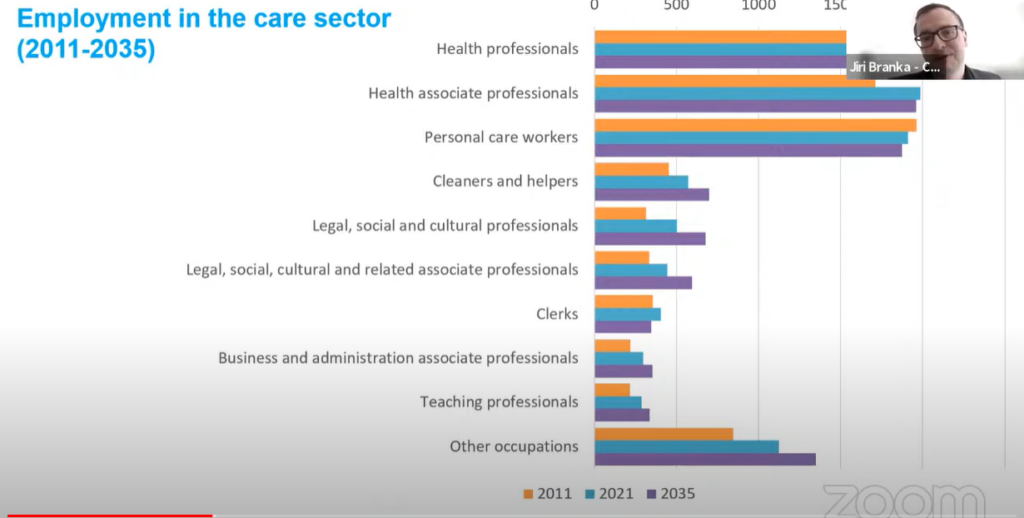
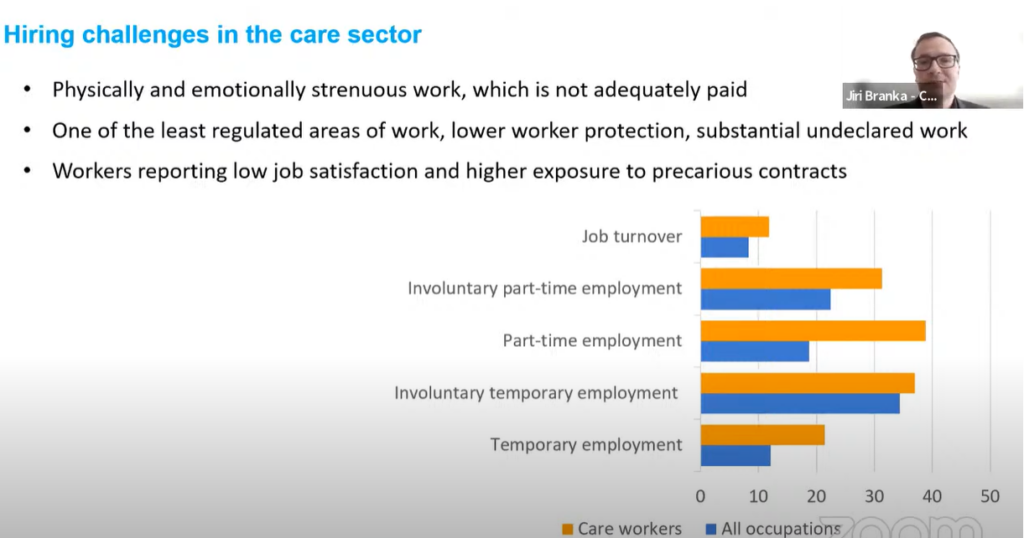
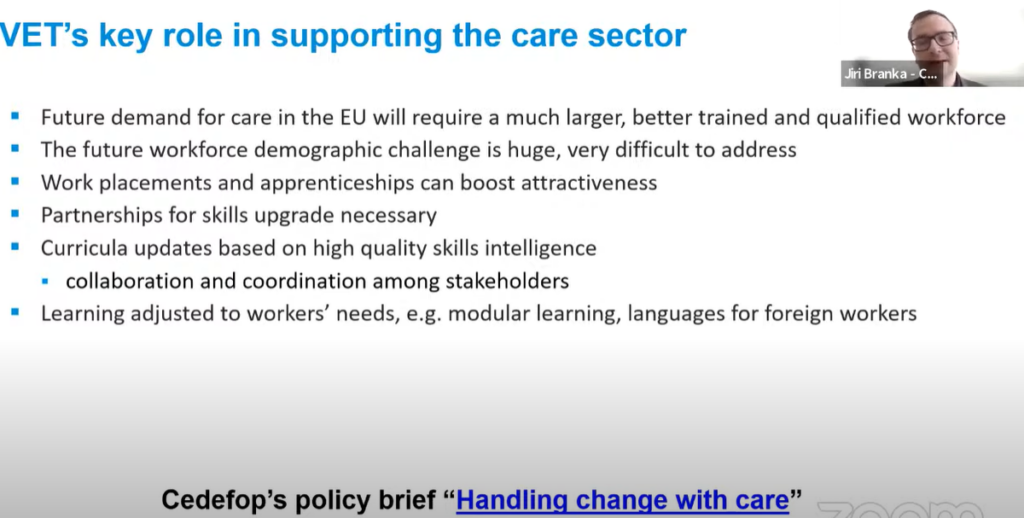
EARLALL Regions sharing Care Sector challenges and opportunities
The regional panel included examples from Centre Val de Loire, Trentino, Svenljunga municipality in Region Västra Götaland and Baden Württemberg, highlighting various initiatives and projects at the regional level aimed at improving the care sector, including vocational training programs, digital approaches to elderly care, and international recruitment of skilled workers.
Centre-Val de Loire Region’s Training and Economic Development
Céline Blan, Director of Guidance and Training Policy, presented the health and social training strategy being implemented in the Centre-Val de Loire region of France. She highlighted the importance of regional economic development and professional training for job seekers. Blan also addressed the need for training in the care and social sectors, which provide various job opportunities. She emphasized the importance of making training sessions free for students and employed people. Blan also touched upon the challenges of the region, such as the shortage of professionals and the difficult recruitment situation in the care sector. She presented some projections for the next decade and the strategies to improve the attractiveness of the training and internship programs. She insisted on the need to improve the quality of training in the work placements to retain future workers within the sector. Blan expressed optimism about the positive impact of mobilizing resources and potentially changing employment policies to supplement the training system.
The experience of the Trentino region: the future of skills in the health sector
Lucia Pederiva, Bruno Kessler Foundation and member of Trentino’s project team of the EUVECA project, then introduced the challenges and future trends in the healthcare sector within the region. She emphasized the need for more self-monitoring and engagement from patients, the digital transformation of society, the rise of personalized care and prevention, and the growing influence of health consumers who demand high-quality, sustainable care. She also stressed the importance of considering the impact of climate change on the healthcare sector. Pederiva presented the EUVECA project which aims to improve skills in the healthcare sector through vocational training. The project is based on feedback from healthcare professionals and students about the skills they believe are important for their future.
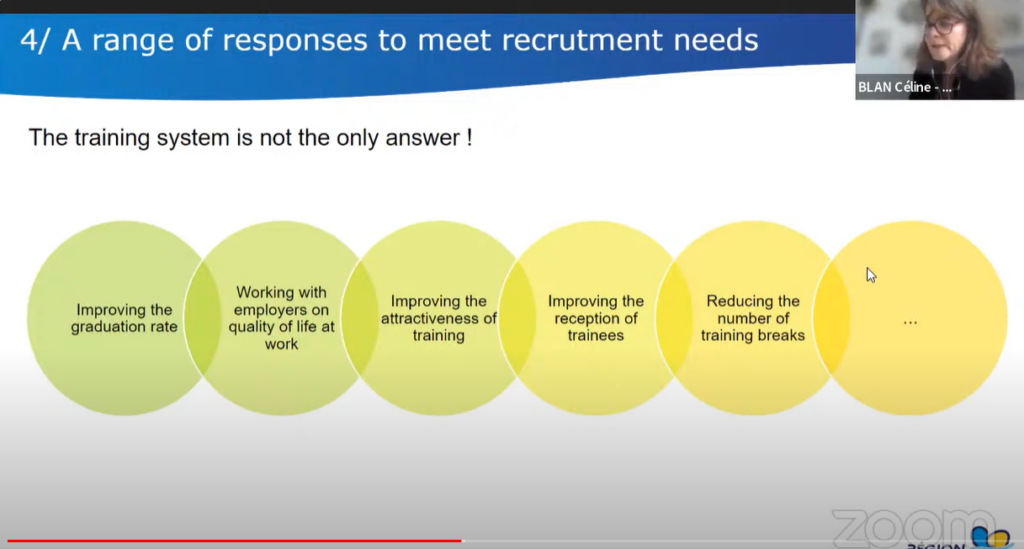
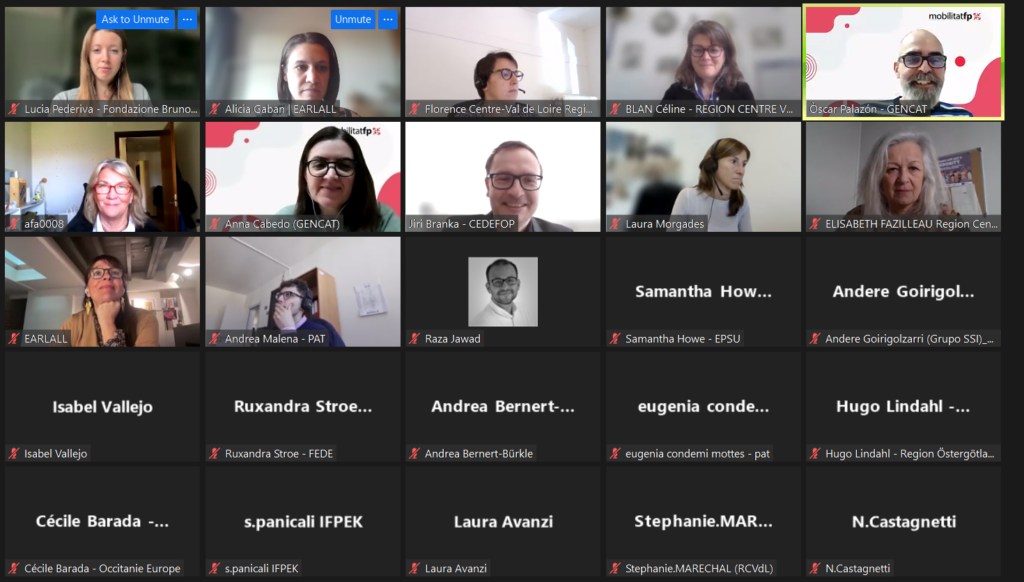
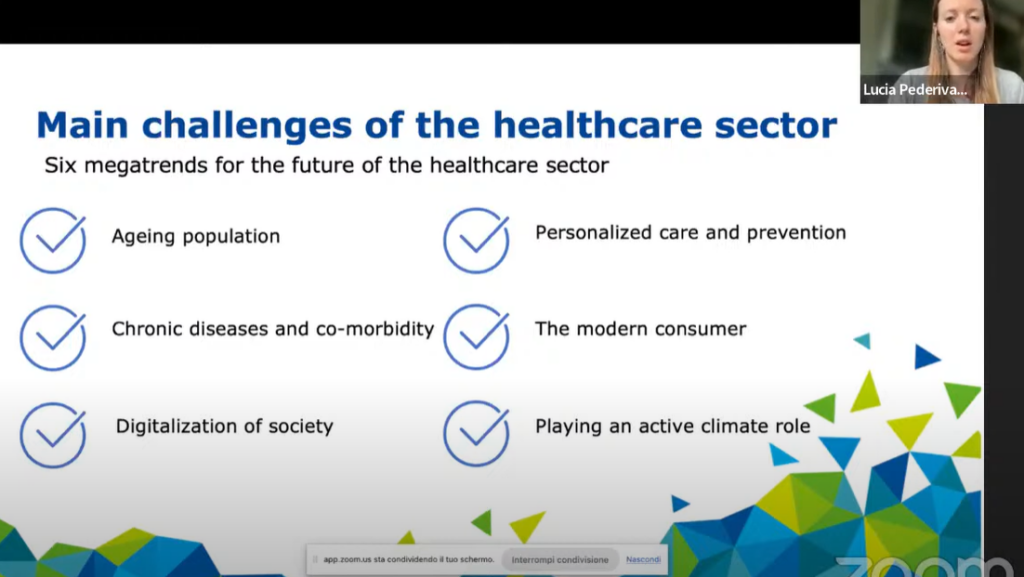
Svenljunga municipality (Region Västra Götaland) challenges
Anna Fallesen, Head of elderly care, at Svenljunga municipality in Region Västra Götaland, discussed the challenges her municipality is facing with an ageing population and a growing need for skilled labour. Fallesen emphasized the need for more digital approaches to elderly care due to the new Social Services Act. She then introduced the social sector’s challenges in Svenljunga municipality, particularly the shortage of a skilled workforce, and shared that they implemented a program called ‘inclusive work life’ to offer unemployed individuals work experience and education simultaneously. She also stressed the importance of including the elderly in society, especially after being isolated during the pandemic.
Anna Cabedo and Òscar Palazón asked about the preparedness of Sweden for future pandemics, to which Anna Fallesen responded that they are currently well-prepared but anticipate a decline in preparedness in a couple of years due to people forgetting the rules and routines established during the COVID-19 pandemic. Alicia Gaban then asked if the new Social Service Act includes training on digital tools, and Anna confirmed that there is no specific chapter dedicated to that and that’s why so important to foster education and to be prepared for a digital future.
Baden Württemberg: Improving German Language Skills for Migrants in Elderly Care
Andrea Bernert-Bürkle, Specialist for EU project counselling and young adult education centres at Volkshochschulverband Baden Württemberg e.V, introduced a project aimed at improving German language skills for migrants working in elderly care. The project, a collaboration between schools and elderly homes, includes weekly language workshops, coaching, and mentoring, all led by staff from the elderly homes. The workshops are tailored to migrants already working in elderly homes and those in the process of proving their qualifications. The project also features an online learning environment. Bernert-Bürkle, also discussed the international recruitment of workers for the care sector, highlighting that they focus on training individuals for skilled jobs to improve retention rates. After being asked about the countries of origin of migrants, she replied that are mainly come from the Czech Republic, Poland… and these days as well a lot of Ukrainian refugees and from the Philippines. She added that those who qualify for skilled jobs tend to stay in their jobs and the region.
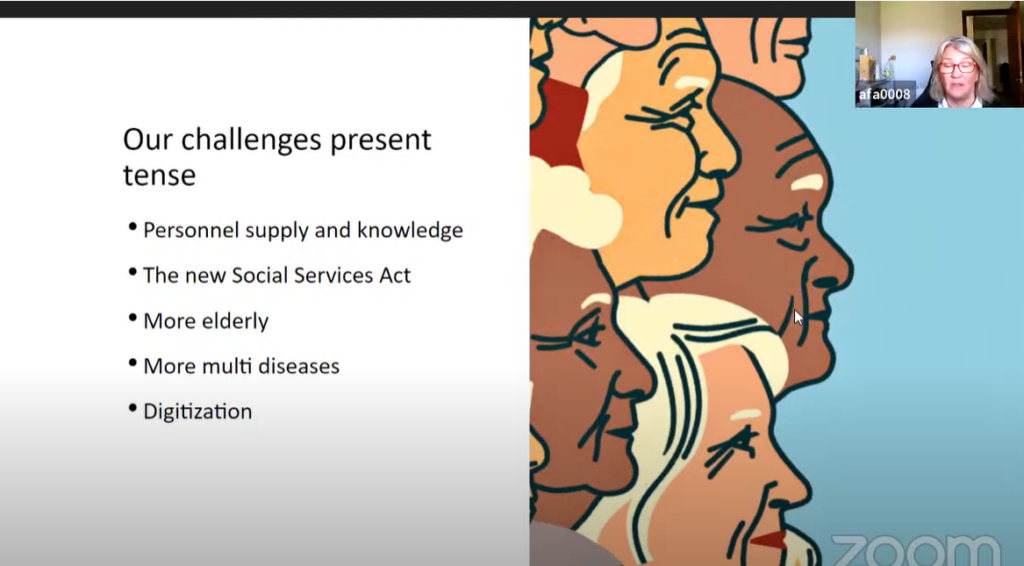
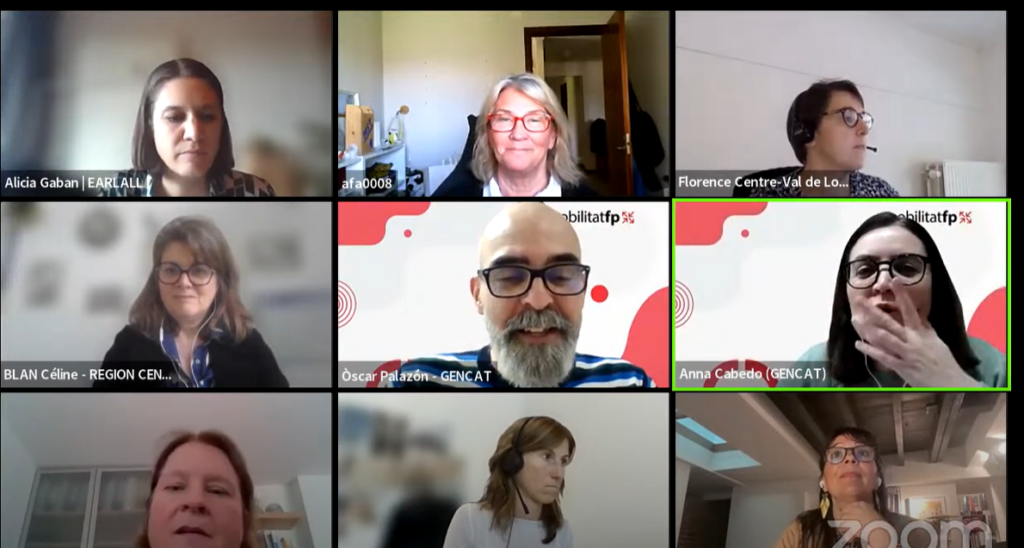
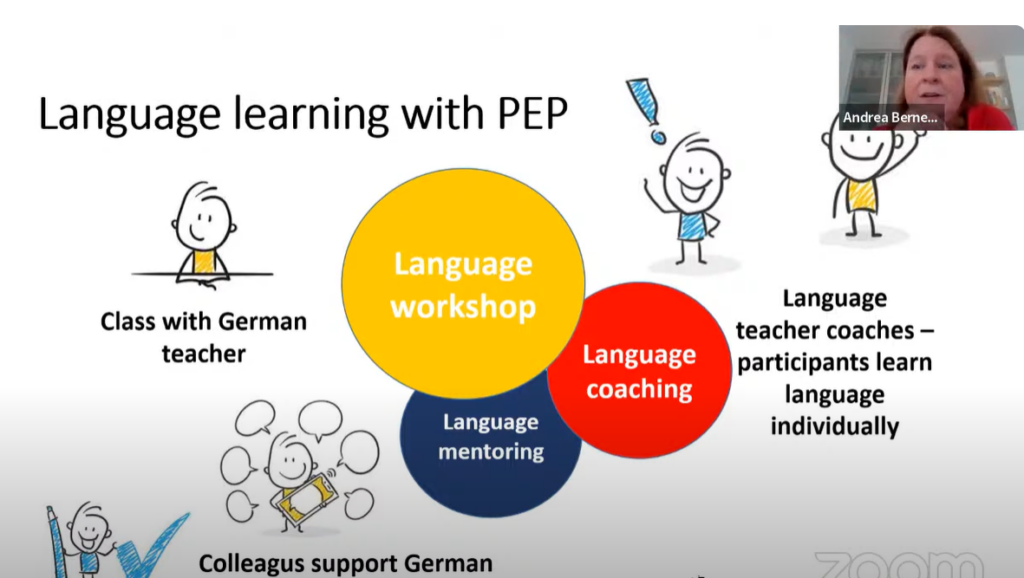
EARLALL warmly thanked its participants for joining and recognised that there is still work to do, but cooperation and collaboration among local and regional authorities are key to overcoming the challenges.
The next sectoral webinar will be focused on the EU Blue Economy Sectors across European Regions on 11 June 2024.
Resources




